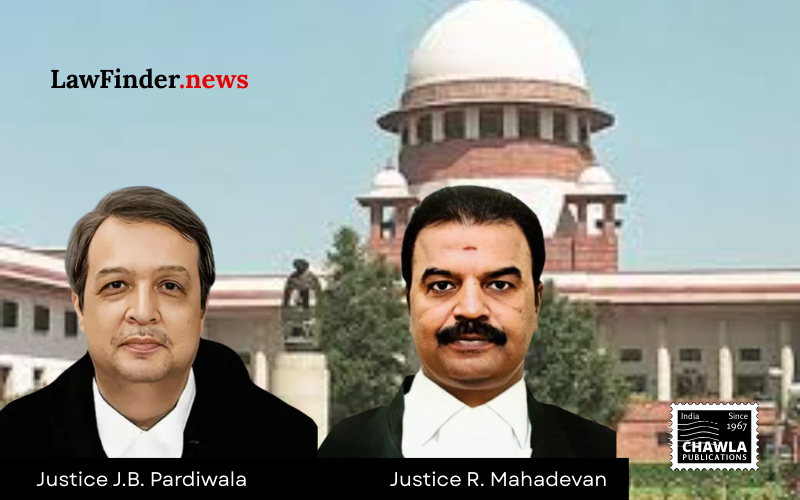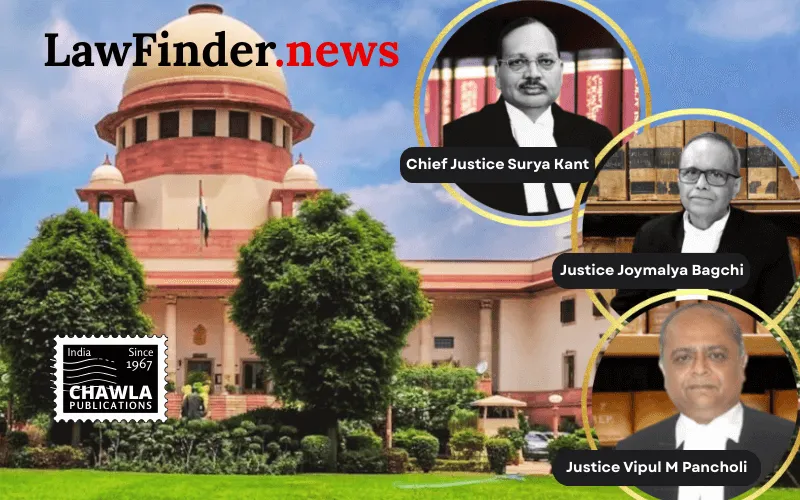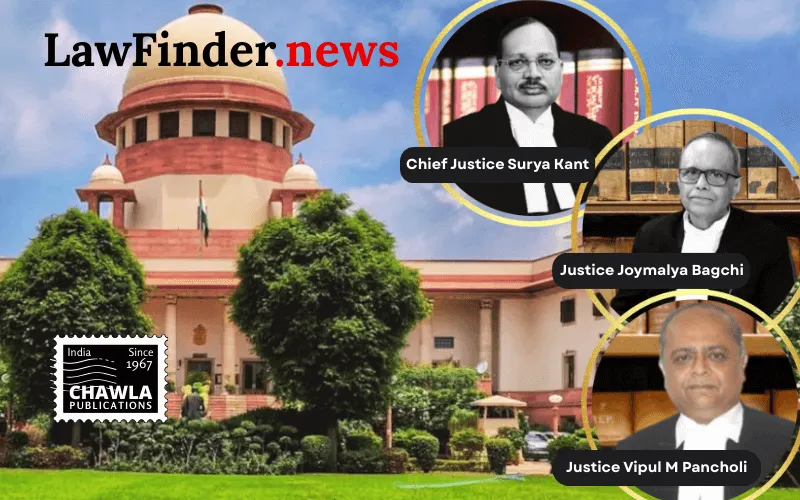Supreme Court Directs Compensation for Discrimination Against Transgender Woman, Calls for Comprehensive Policy and Enforcement of Transgender Rights Act. In landmark judgment, the Supreme Court highlights State and private sector failures under the Transgender Persons (Protection of Rights) Act, 2019, mandates formation of Advisory Committee, and stresses need for reasonable accommodation and active enforcement to uphold dignity and equality of transgender persons.
In a significant judgment delivered on October 17, 2025, the Supreme Court of India, comprising Justices J.B. Pardiwala and R. Mahadevan, addressed the pervasive discrimination faced by transgender persons, emphasizing the glaring implementation gaps of the Transgender Persons (Protection of Rights) Act, 2019 (the “2019 Act”) and its Rules, 2020. The case arose from the plight of Ms. Jane Kaushik, a transgender woman who was allegedly discriminated against and terminated from two private schools in different States on account of her gender identity.
The Court observed that despite the landmark 2014 NALSA judgment recognizing transgender persons as the “Third Gender” and the enactment of the 2019 Act to protect their rights, the lived reality remains one of systemic discrimination, marginalization, and lack of effective grievance redressal. The Union of India and various States were found to have exhibited lethargy in creating mechanisms to enforce the statutory rights guaranteed under the Act and Rules. The Court lamented the failure to constitute complaint officers in establishments, formulate comprehensive policies for equal opportunity, and sensitize society and institutions about transgender rights.
Ms. Kaushik’s case revealed a disturbing pattern: from being subjected to harassment and body shaming in one school, forced resignation allegedly due to her transgender identity, to denial of employment in another school after an offer letter was issued. While the first school was found to have made some accommodations, the Court criticized its failure to prevent harassment and noted that absence of complaint officers forced Ms. Kaushik to seek relief through multiple ineffective fora. The second school was held liable for discriminatory denial of employment, as it failed to provide any justification beyond the revelation of her gender identity.
The Court delved into the constitutional and statutory framework, underscoring that the rights of transgender persons flow from Articles 14, 15, 17, 19, and 21 of the Constitution, which prohibit discrimination and guarantee dignity and equality. The 2019 Act, which extends these fundamental rights horizontally to private establishments, mandates non-discrimination in education, employment, healthcare, and access to public spaces, and requires establishments to designate complaint officers and provide grievance redressal mechanisms.
A key highlight of the judgment is the Court’s reaffirmation of the doctrine of “reasonable accommodation” as an essential facet of substantive equality. Drawing from Indian disability jurisprudence and international precedents from Canada, the USA, and the European Union, the Court held that reasonable accommodation is a positive obligation on both the State and private entities to remove barriers and enable transgender persons to participate equally in society and workplaces. The Court clarified that discrimination may also arise from omissions or systemic inertia, and not only from overt acts, and that failure to implement grievance redressal mechanisms constitutes actionable discrimination.
The Court awarded Ms. Kaushik a compensation of Rs. 50,000 from the second school for discriminatory denial of employment. It also directed the Union of India and the concerned States to pay Rs. 50,000 each to Ms. Kaushik for their inaction which deprived her of effective redressal mechanisms. The Court underscored that compensation under Article 32 of the Constitution is a public law remedy to enforce fundamental rights and is distinct from private law damages.
Recognizing the complexity and multi-dimensional nature of transgender rights issues, the Court constituted an Advisory Committee comprising former judges, transgender rights activists, legal experts, and representatives from various Ministries. The Committee is mandated to prepare a comprehensive policy framework within six months addressing equal opportunity, reasonable accommodation, grievance redressal, identity recognition, inclusive healthcare, and protections for gender non-conforming persons. The Court also directed the Union Government to deposit Rs. 10 lakhs for the Committee’s functioning and tasked all States and Union Territories to cooperate in implementing the Court’s directions.
The judgment highlights several shortcomings of the 2019 Act, including the absence of clear mechanisms for enforcement, lack of sensitization and awareness programs, and failure to create inclusive environments in educational and employment institutions. It further calls for immediate steps such as the creation of transgender protection cells at district and state levels, establishment of a nation-wide helpline, and the adoption of gender-neutral facilities in public and private spaces.
This ruling marks a pivotal moment in the protection of transgender rights in India, emphasizing that legal recognition without effective implementation and societal change remains hollow. It reaffirms the constitutional promise of dignity, equality, and non-discrimination, and calls upon the State and private establishments to translate these promises into lived realities for transgender persons.
Bottom Line:
Transgender are entitled to substantive equality, including reasonable accommodation and protection from discrimination in employment and education - Transgenders - Discrimination by private establishments violate fundamental rights : Compensation awarded
Statutory provision(s): Transgender Persons (Protection of Rights) Act, 2019 Sections 2(b), 3, 8, 9, 10, 11, 13, 14, 15, 22; Transgender Persons (Protection of Rights) Rules, 2020 Rules 3, 4, 5, 6, 7, 8, 9, 10, 11, 12, 13; Constitution of India Articles 14, 15, 17, 19, 21
Jane Kaushik v. Union of India, (SC) : Law Finder Doc Id # 2795996




